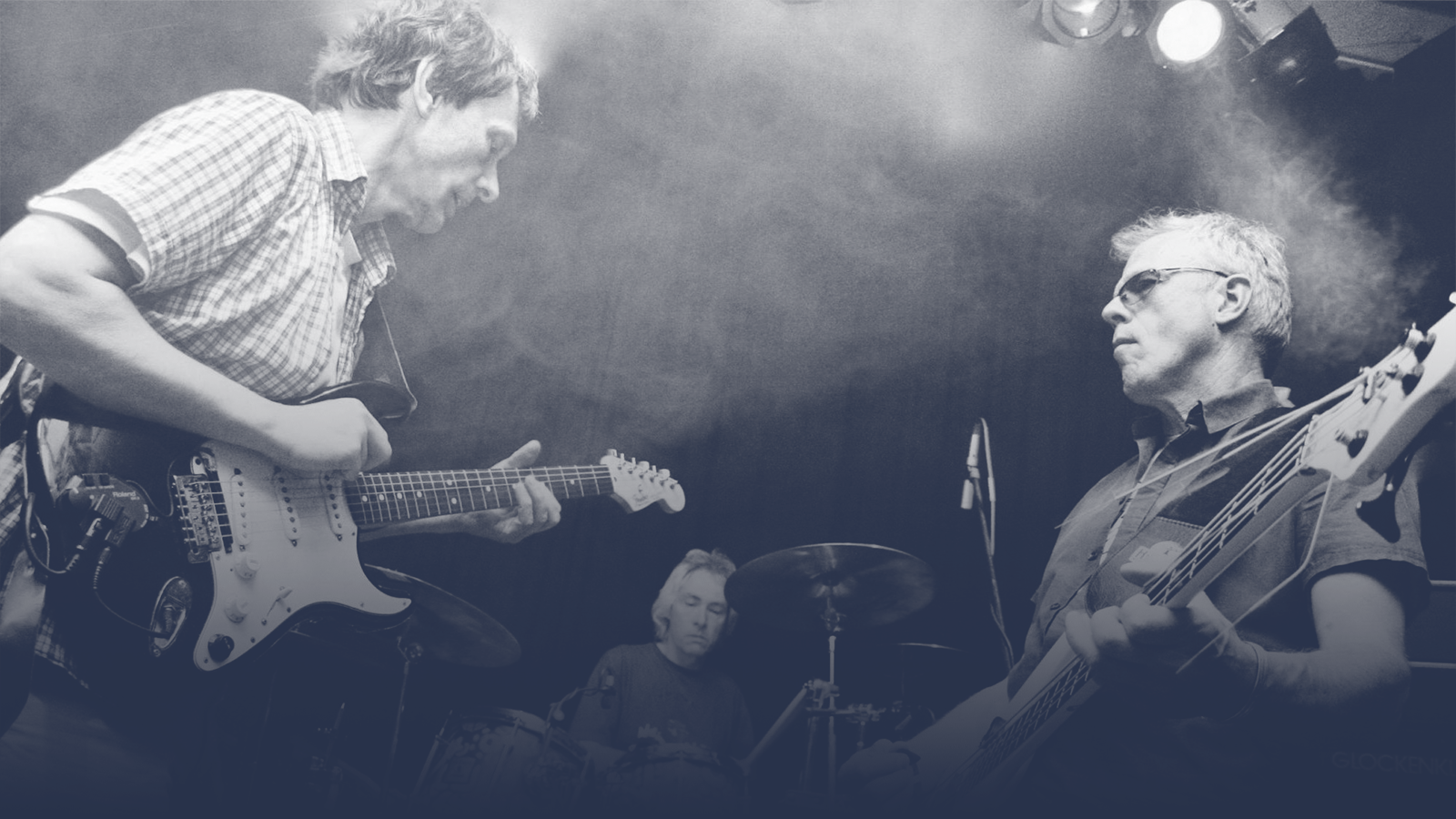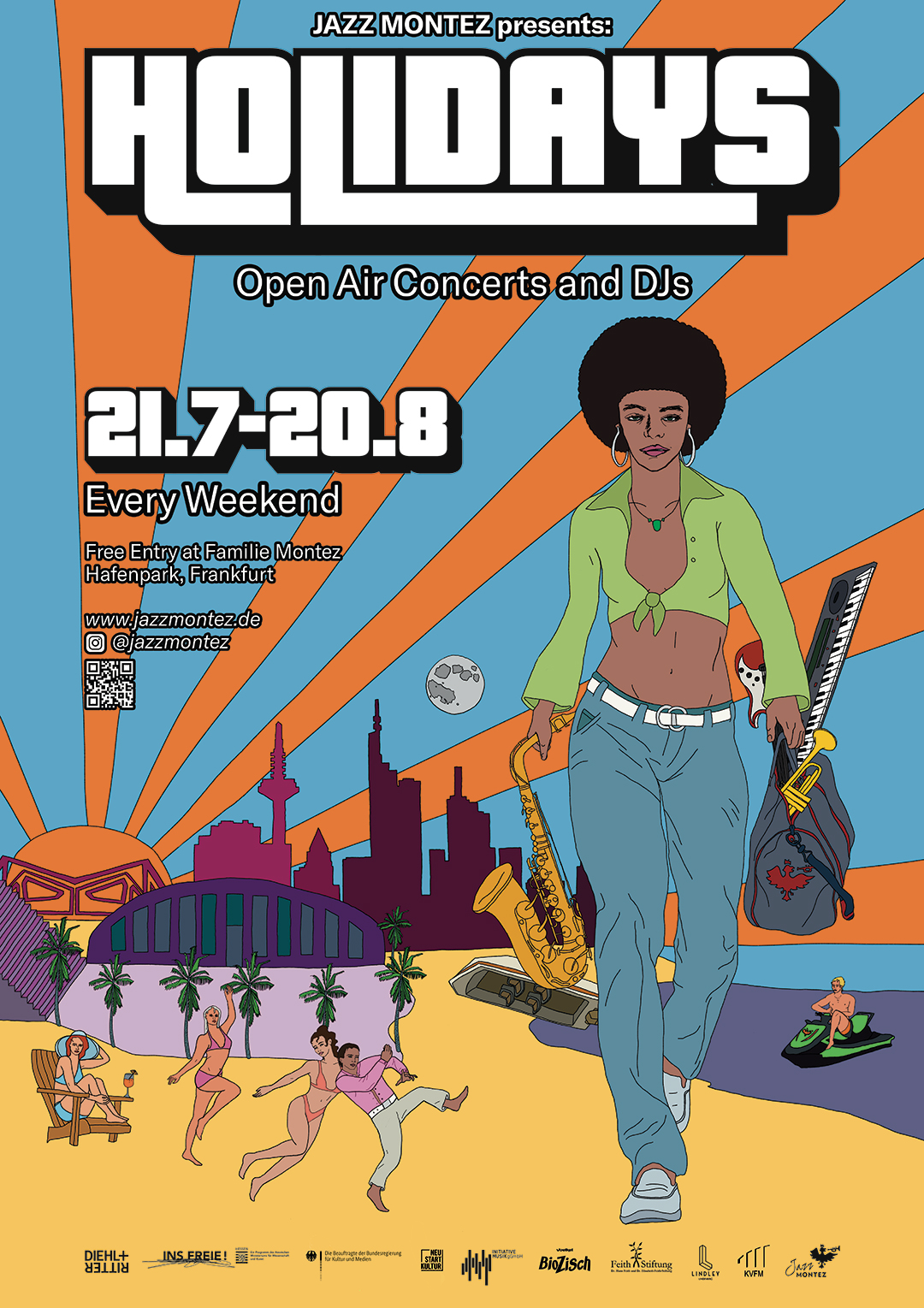Su
14.08.
Beginn
19:00
Eintritt
0€
Mitglieder
0€
Info
Concert
The group Kraan is one of the longest-serving Krautrock bands, which is still active today. However, the predicate "Krautrock" is only applicable to the first albums, on the later jazz rock was played. The fantastic debut album "Kraan" was recorded in 1972 in a farmhouse in Wintrup in Westphalia, where the band lived for years as a commune. Interesting jazz rock with Arabic and progressive influences is played.
Already in 1969 there was a lot of jamming and the bands of Waldorf students Peter Wolbrandt (guitar), Jan Fride (drums) and Hellmut Hattler (bass) bore names like Veith Wolbrandt Group or Inzest. However, Kraan was not founded until 1971. The trio met saxophonist Johannes "Alto" Pappert, who was looking for new musical freedom. The mixture of jazz, rock and Eastern elements was developed in Berlin and Ulm, the name Kraan was invented by Hellmut Hattler. Peter Wolbrandt: "No idea what was going on in him." We don't know either, but the name worked.
On the Wintrup estate in the Teutoburg Forest, which belonged to Count Peter von Metternich and who quickly became a fan of Kraan and let the musicians live rent-free, the band grew into unity in seclusion. The first record, with the simple title Kraan, was recorded in just two days in May 1972. The four musicians received high praise in specialist newspapers and top positions in readers' magazines. Kraan became one of the most popular festival bands and played more than 100 concerts a year - many also in England or as headliners in Roskilde.
After the albums "Wintrup" and "Andy Nogger", the legendary double album "Kraan live", recorded in Berlin's Latin Quarter, was released in 1975 - probably one of the best albums in German rock history, which was in almost every record cabinet. A little later, the keyboarder Ingo Bischof brought new timbres to the Conny Plank
LP "Let It Out" into the game. However, ego trips and the Kommunenkoller followed. After the album "Wiederhören", which was acclaimed by the trade press, and the subsequent tour, the musicians left the stage together "for the last time" in May 1977. It was a shock for the German music scene and the fans.
Peter Wolbrandt produced a solo album and Hellmut Hattler released the LP "Bassball". But a few months later, the next Kraan record "Flyday" was recorded with a strong psychedelic touch. The new drummer became Hellmut's Bassball live drummer Udo Dahmen. The Musikexpress wrote at the time: "Flyday is a highly emotional LP on which the reformed Kraan, who have never been on the German rock cultural trip anyway, seem relaxed and spontaneous like hardly any other European band."
After that, Kraan continued to play in constantly changing formations. On three tracks of the LP "Nachtfahrt" Jan Fride played drums again until he was replaced by the popular jazz rock drummer Gerry Brown. In 1987, after a three-year live break, the Kraaniche Hellmut, Peter and Jan met again in the spring of 1987 to occasionally go on stage and into the studio with trumpeter Joo Kraus as the new fourth man. The "Kraan Live '88", "Dancing in the Shade" and "Soul of Stone", a record that already sounded very much like Tab Two, should be the last records before a longer break. In 1990, the final end of Kraan seemed to have come. Tab Two began their soaring, while Peter and Jan became successful computer specialists and moved away from music.
So far, so good, because in March 1999 the Danish Kraan webmaster Michael Bohn discovered the homepage of Peter Wolbrandt and put a link on his page. Kraan fans quickly began to ennoble Peter Wolbrandt with e-mails, to revive Kraan. A result with completely new pieces is now in their CD player and is called "Through".
Location
Kunstverein Familie Montez

